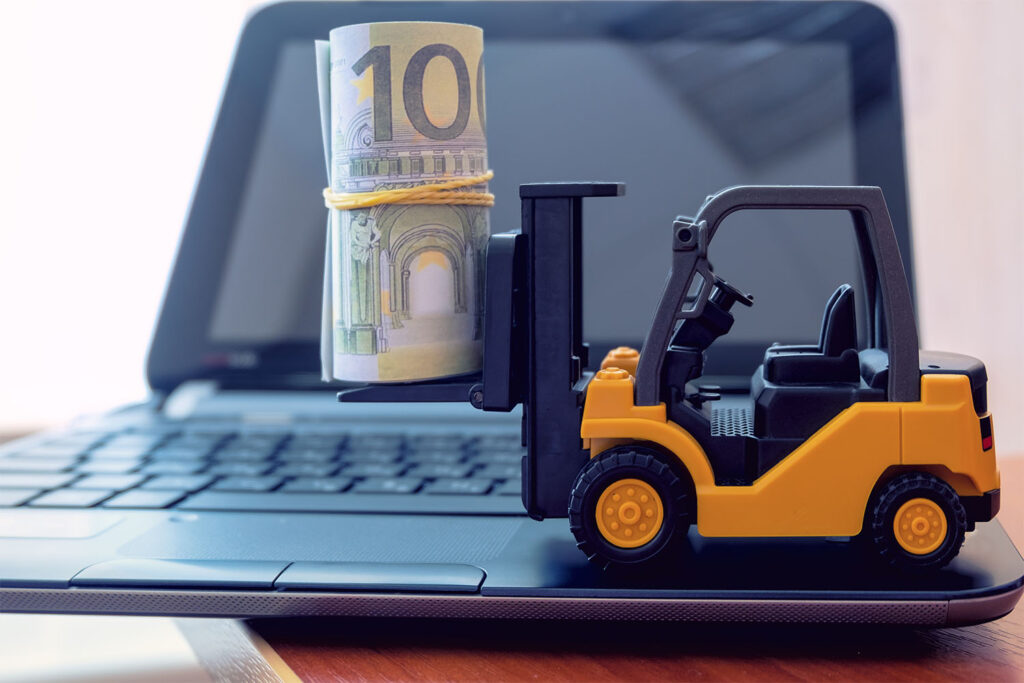Top 10 Benefits of Equipment Financing for Your Business

Looking to bolster your business’s capabilities without draining your financial resources? Equipment financing offers a strategic avenue for growth, enabling companies to acquire necessary tools and machinery without debt or depleting crucial funds earmarked for other ventures. From small enterprises to large corporations, businesses of all sizes recognize the value of equipment financing in maintaining operational efficiency and fostering growth.
For small business owners, it serves as a lifeline, offering a viable solution to procure costly equipment when cash reserves fall short. With equipment financing providers and brokers at their disposal, companies can confidently navigate the path to success, equipped with the tools needed to thrive in competitive markets. In this blog post, we will delve into the top 10 benefits of equipment financing for your business.
What Is Equipment Financing?
Equipment financing is a financial arrangement wherein a business obtains the necessary funds to purchase equipment, machinery, vehicles, or other tangible assets required for its operations. Instead of paying the total cost upfront, the business secures a small business equipment loan or lease agreement with a lender or financing company.

This allows the business to acquire the needed equipment while spreading the cost over time through regular monthly or quarterly payments.
Various types of business equipment financing options are available, including equipment loans, equipment leases, and equipment sale-leasebacks. Each option has its terms, benefits, and considerations, offering businesses flexibility in how they structure their equipment acquisitions.
Overall, heavy equipment financing provides businesses access to crucial assets without requiring significant upfront capital investments, enabling them to preserve cash flow and maintain financial flexibility for other operational needs. [1]
Top 10 Benefits of Equipment Financing for Your Business
Capital equipment is essential for many businesses, but rising prices pose challenges for business owners. Equipment leasing has become a favored solution across industries to navigate these costs effectively. Discover the top 10 benefits of equipment leasing and learn why it’s a smart choice for businesses of any size or type.

1. No Outmoded Equipment
When a company leases equipment instead of purchasing it outright, it sidesteps the risk of being saddled with outdated machinery. Unlike owning equipment, where the business is responsible for managing asset depreciation and technological obsolescence, leasing offers the flexibility to upgrade to newer models at the end of the lease term.
This agility is particularly advantageous for industries experiencing rapid technological advancements and evolving business landscapes, allowing businesses to maintain competitiveness by continually accessing the latest equipment without the burden of ownership. [2]
2. Monthly Payments Are 100% Tax Deductible
One of the key benefits of equipment financing lies in its tax advantages, specifically in the realm of deductible expenses. While equipment purchases offer tax deductions through IRS Section 179, there are limitations based on annual equipment acquisition thresholds. For mid-sized and large businesses, these constraints may limit tax benefits.
Conversely, under IRS guidelines, equipment lease payments are entirely tax deductible without such limitations, presenting an attractive alternative for businesses seeking to maximize tax savings. Industry experts note that in some cases, the tax benefits derived from equipment leasing can exceed the total lease payments, providing substantial cost savings for the business.
3. Option to Buy
In equipment leasing, the option to purchase offers strategic foresight for businesses anticipating future needs. With most lease agreements, businesses retain the flexibility to acquire the leased equipment at the agreement’s conclusion. This strategic advantage becomes particularly evident when businesses foresee impending technological advancements rendering equipment obsolete.
By purchasing the leased equipment, companies can secure it at a discounted rate reflecting its fair market value, often after the leasing company has undertaken significant repairs and maintenance services during the lease term. This calculated move can translate into long-term cost savings compared to continually leasing updated equipment.
4. Low Negative Impact on Your Credit Score
Unlike traditional equipment purchases that often increase debt loads and lower credit scores, equipment leasing presents a favorable alternative with minimal impact on credit ratings. While purchasing equipment typically involves securing large loans reported to credit agencies, leasing agreements entail only modest initial credit checks, sparing businesses from significant credit score fluctuations.

Credit agencies view Lease payments differently, exerting minimal influence on credit scores and allowing firms to preserve their financial standing while accessing necessary equipment. [3]
5. On-Time Payments Can Boost Your Credit Score
Maintaining a positive payment record through timely lease payments can bolster a business’s credit score, enhancing its reputation for financial reliability in the marketplace.
As lease payments are reported to credit agencies, consistent adherence to payment schedules reflects a business’s creditworthiness favorably, reinforcing its standing as a responsible borrower and opening doors to future financing opportunities.
6. No Down Payments
In contrast to conventional equipment purchases that often necessitate substantial down payments to mitigate lending risks, equipment leases typically require no hefty upfront payments. Leasing agreements streamline the acquisition process by circumventing the need for significant down payments or collateral, enabling businesses to access essential equipment promptly without depleting cash reserves or tying up capital in initial payments.
Instead, equipment leasing companies can secure the required insurance coverage for the leased equipment, facilitating a straightforward and cost-effective procurement process.
7. Affordable Rates
One of the primary advantages of equipment leasing lies in its cost-effectiveness, particularly in affordable monthly rates. Traditional equipment acquisition methods, such as purchasing with cash reserves or securing bank loans, often entail significant upfront expenses. Cash purchases may drain resources, while bank loans result in monthly payments reflecting the equipment cost.

In contrast, equipment leasing offers a more economical approach by spreading the cost over manageable monthly payments. Since lease payments are based on a portion of the equipment’s value rather than its total cost, businesses benefit from lower monthly expenses throughout the lease term. This financial flexibility enables businesses to allocate resources more efficiently, directing funds toward core operations and growth initiatives.
8. Fixed Monthly Rates
Budgetary stability is crucial for businesses navigating financial planning, making the predictability of fixed monthly rates a key advantage of equipment leasing. Unlike bank loans, where fluctuating interest rates introduce uncertainty into financial projections, lease agreements offer consistency and reliability.
With fixed monthly fees, businesses can confidently forecast expenses and maintain financial stability, streamlining budget management and facilitating long-term strategic planning. [4]
9. Option to Use Leasing Company’s Insurance
Equipment leasing offers the advantage of leveraging the leasing company’s insurance coverage. Unlike purchasing equipment outright or through bank loans, where businesses are responsible for insurance and legal liabilities, leasing shifts this burden to the leasing company.
While lessees typically obtain liability coverage, leasing agencies often extend their comprehensive insurance policies to lessees, simplifying the insurance process and ensuring broader coverage without separating arrangements. By incorporating insurance costs into monthly lease payments, businesses benefit from broader coverage and eliminate the hassle of managing insurance independently, enhancing convenience and risk management.
10. Doesn’t Tie Up Lines of Credit
Choosing equipment leasing over purchasing preserves businesses’ lines of credit for emergencies and strategic opportunities. Unlike equipment purchases that may exhaust available credit lines, leasing allows businesses to acquire necessary equipment without tying up capital.
This approach ensures that lines of credit remain accessible for critical needs, enhancing financial flexibility and enabling enterprises to respond promptly to unforeseen challenges or growth opportunities. By leveraging leasing agreements, businesses optimize resource allocation and maintain agility in managing financial resources.
Wrap Up:
In conclusion, equipment leasing emerges as a versatile and cost-effective solution for businesses seeking to acquire essential assets while preserving financial flexibility. The benefits of equipment leasing are undeniable, from affordable rates and fixed monthly payments to the option to use the leasing company’s insurance and the avoidance of tying up lines of credit. By leveraging leasing agreements, businesses can navigate market fluctuations, stay ahead of technological advancements, and maintain agility in managing financial resources.
Fast Funds stands ready to support businesses on their journey towards growth and success. As a trusted funding partner, we offer comprehensive solutions tailored to your needs. Let Fast Funds be your ally in achieving your financial goals. Contact us today and discover how we can propel your business toward a brighter future.
FAQs
1. What is equipment financing in business?
Equipment financing in business entails accessing credit to fulfill equipment and machinery needs. This financial solution facilitates acquiring, leasing, upgrading, or repairing essential equipment, providing businesses with the necessary resources to optimize operations efficiently.
2. What are the advantages of financing?
Financing enables businesses to increase sales by offering customers flexible payment options that align with their budget constraints. By integrating financing early in sales discussions, businesses overcome the hurdle of high purchase prices, facilitating easier customer decision-making and boosting sales conversions.
References:
[1]https://charteraz.com/2022/09/09/benefits-of-equipment-financing/
[2]https://www.1stcommercialcredit.com/blog/the-top-10-benefits-of-equipment-leasing
[3]https://fastercapital.com/topics/benefits-of-equipment-financing-for-your-business.html[4]https://www.forconstructionpros.com/business/business-services/financing-insurance-leasing/article/10835556/10-key-benefits-of-heavy-equipment-financing
